
Wadi Mujib: The Grand Canyon of Jordan
Wadi Mujib, also known as the 'Grand Canyon of Jordan,' is a breathtaking gorge that cuts through the rugged landscape of the Jordanian desert, plunging down to the shores of the Dead Sea. With its dramatic cliffs, rushing waterfalls, and clear blue pools, Wadi Mujib offers a paradise for adventure seekers and nature lovers alike. The Wadi Mujib Biosphere Reserve, the lowest nature reserve in the world, boasts a rich biodiversity and is home to many rare plants and animals, making it an ideal destination for eco-tourism. One of the most popular activities in Wadi Mujib is canyoning, where visitors can hike, climb, swim, and abseil through the water-filled canyons. The Siq Trail is particularly famous for its exhilarating mix of wading through water and scrambling over rocks. The Mujib River, which flows through the wadi, creates a refreshing escape from the desert heat, with numerous cascades and pools providing perfect spots for a cool dip. For those who prefer a more relaxed experience, the reserve's hiking trails offer stunning views of the surrounding landscape, with opportunities to spot wildlife like Nubian ibexes and Syrian wolves. Wadi Mujib is not just about its natural beauty; it also has historical significance. The area has been inhabited since ancient times, and you can find remnants of Roman aqueducts and ancient fortresses. The region's historical and cultural richness adds another layer of depth to a visit here, making it a must-see for anyone traveling to Jordan. Whether you are an adrenaline junkie, a nature enthusiast, or a history buff, Wadi Mujib promises an unforgettable adventure.
Local tips in Wadi Mujib
- Wear sturdy water shoes suitable for hiking and swimming; the terrain can be slippery and uneven.
- Visit during the spring or autumn months for the best weather and to avoid the scorching summer heat.
- Hire a local guide for a safer and more informative experience, especially if you plan on canyoning.
- Carry a waterproof bag or pouch to protect your electronics and valuables while navigating the water-filled canyons.
- Check the weather forecast before your trip; flash floods can occur, making some trails dangerous.
Wadi Mujib: The Grand Canyon of Jordan
Wadi Mujib, also known as the 'Grand Canyon of Jordan,' is a breathtaking gorge that cuts through the rugged landscape of the Jordanian desert, plunging down to the shores of the Dead Sea. With its dramatic cliffs, rushing waterfalls, and clear blue pools, Wadi Mujib offers a paradise for adventure seekers and nature lovers alike. The Wadi Mujib Biosphere Reserve, the lowest nature reserve in the world, boasts a rich biodiversity and is home to many rare plants and animals, making it an ideal destination for eco-tourism. One of the most popular activities in Wadi Mujib is canyoning, where visitors can hike, climb, swim, and abseil through the water-filled canyons. The Siq Trail is particularly famous for its exhilarating mix of wading through water and scrambling over rocks. The Mujib River, which flows through the wadi, creates a refreshing escape from the desert heat, with numerous cascades and pools providing perfect spots for a cool dip. For those who prefer a more relaxed experience, the reserve's hiking trails offer stunning views of the surrounding landscape, with opportunities to spot wildlife like Nubian ibexes and Syrian wolves. Wadi Mujib is not just about its natural beauty; it also has historical significance. The area has been inhabited since ancient times, and you can find remnants of Roman aqueducts and ancient fortresses. The region's historical and cultural richness adds another layer of depth to a visit here, making it a must-see for anyone traveling to Jordan. Whether you are an adrenaline junkie, a nature enthusiast, or a history buff, Wadi Mujib promises an unforgettable adventure.
When is the best time to go to Wadi Mujib?
Iconic landmarks you can’t miss
مطل الموجب Moujib Panorama
Explore the breathtaking views of Moujib Panorama, a must-visit destination in Jordan for nature lovers and photographers.
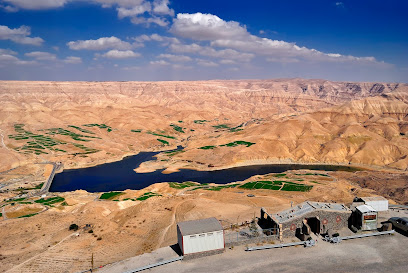
شط الملح
Discover the serene beauty and rich cultural heritage of Shat Al-Melih, Jordan's hidden gem for nature lovers and adventure seekers.
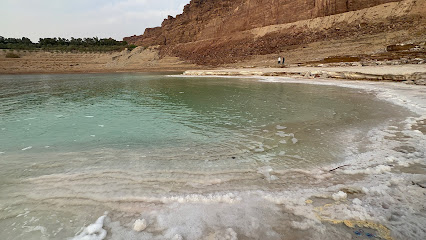
Al Lahun
Explore the breathtaking Al Lahun, a historical landmark offering stunning views of the Grand Canyon of Jordan and Wadi Mujib dam, rich in culture and nature.
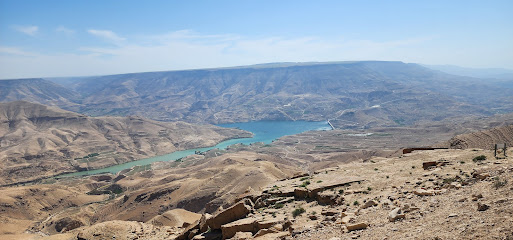
Wadi Mujib, Ibex Trail
Explore the breathtaking landscapes and thrilling hikes of Wadi Mujib, where adventure awaits in Jordan's natural wonderland.
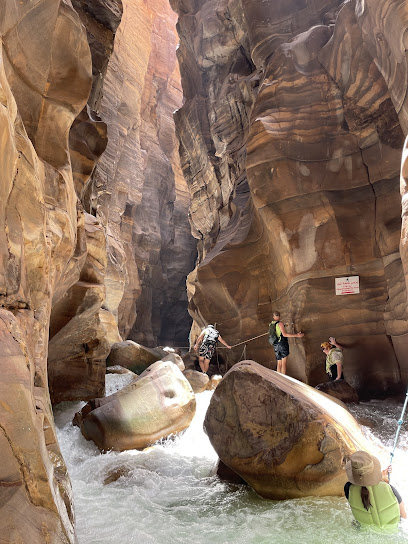
Unmissable attractions to see
Madaba Visitors Center
Explore the rich history and stunning mosaics of Madaba at the Madaba Visitors Center, your essential guide to this cultural treasure in Jordan.
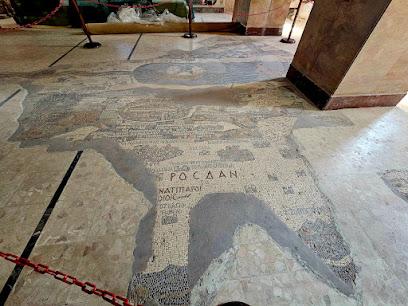
Apostles Church كنيسة الرسل
Explore the Apostles Church in Madaba, Jordan, a historical landmark famed for its stunning mosaics and rich cultural heritage.
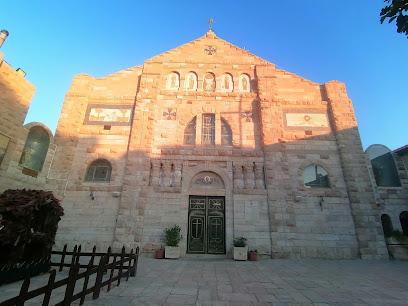
Salt beach
Experience the tranquil beauty of Salt Beach in Sirfa, a perfect blend of relaxation and adventure on the Jordanian coastline.
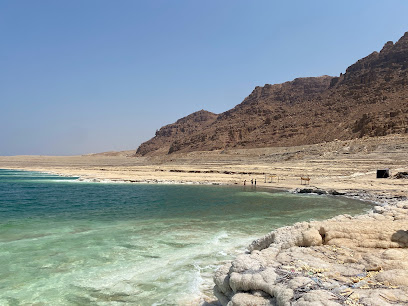
بحر 079
Explore the therapeutic allure of بحر 079 in Jordan, where stunning natural beauty meets relaxation and wellness in a serene setting.
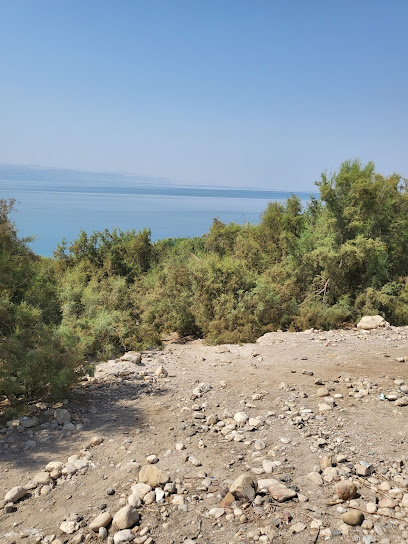
Hot Water spring
Discover the therapeutic waters of Hot Water Springs in Machaerus, a serene escape where nature meets history in breathtaking landscapes.
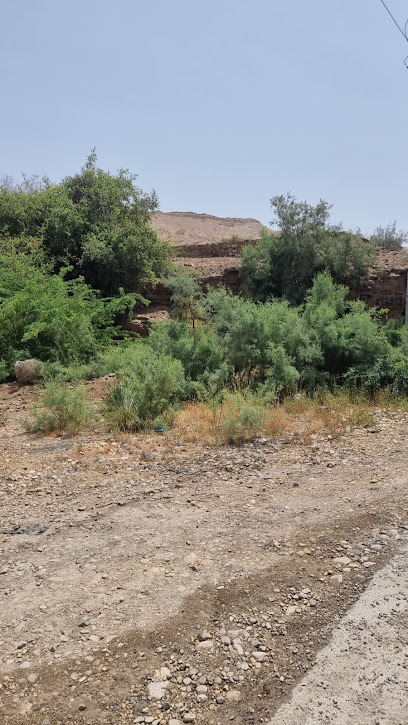
Non-Popular Salt Beach
Experience the beauty and tranquility of Non-Popular Salt Beach, a serene getaway perfect for relaxation and exploration.
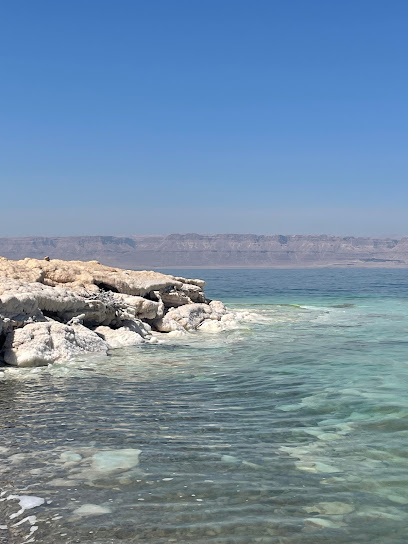
Himara Falls Parking Spot
Experience the serene beauty of Himara Falls in Machaerus, a hidden gem perfect for nature lovers and adventure seekers.
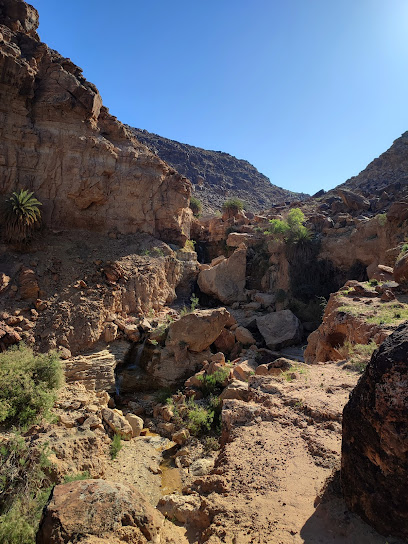
Mujib River Canyon
Explore the breathtaking Mujib River Canyon, a natural wonder in Jordan, perfect for adventure lovers and nature enthusiasts alike.
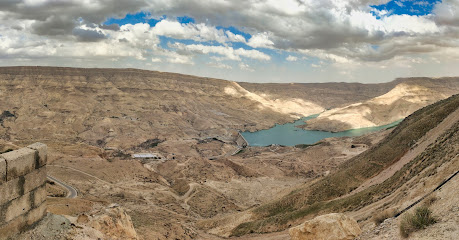
مسار وادي الموجب/مضارب بني حميدة
Discover the breathtaking beauty of Wadi Al-Mujib, a hiker's paradise in Jordan with stunning landscapes and thrilling adventures.
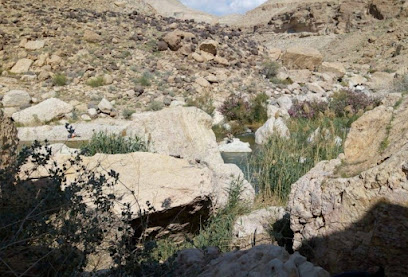
Machareus st.
Explore the historic charm of Machareus Street, where Jordanian culture meets stunning landscapes and local craftsmanship in an unforgettable experience.
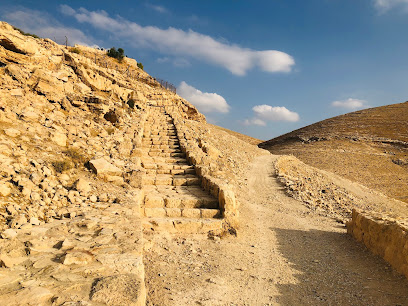
Sarayji view
Explore the stunning Sarayji View in Machaerus, where history meets breathtaking landscapes, perfect for unforgettable memories and stunning photographs.
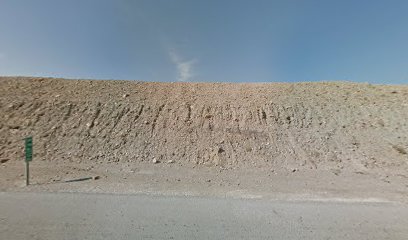
مطل البحر الميت
Experience breathtaking views and natural beauty at the Dead Sea Viewpoint, a stunning tourist attraction in Jordan.
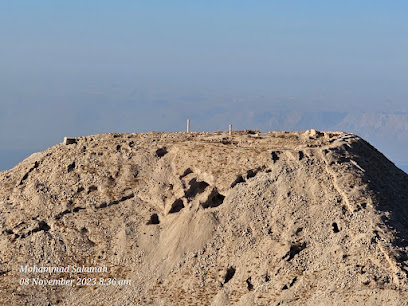
Non-Popular Salt Beach Parking
Experience the serene beauty of Non-Popular Salt Beach Parking in Sirfa, your perfect gateway to relaxation and adventure by the stunning Salt Beach.
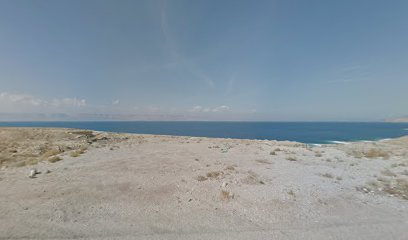
Ma’in Valley view
Experience the breathtaking beauty and rich history of Ma'in Valley View, a must-visit tourist attraction in Jordan offering stunning landscapes.
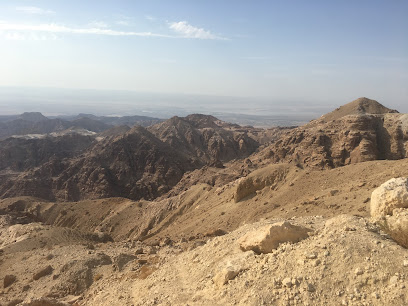
الملاقي
Explore Al Malaki in Al Judayyidah, a stunning tourist attraction blending natural beauty with rich cultural heritage in the heart of Jordan.

Essential places to dine
Buffalo Wings & Rings - Dead Sea
Experience mouthwatering chicken wings in a lively sports bar setting by the breathtaking Dead Sea.
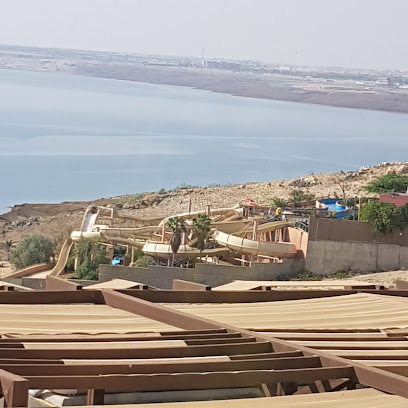
Beit Sweimeh بيت سويمة
Experience authentic Jordanian cuisine at Beit Sweimeh, where delicious flavors meet stunning views by the Dead Sea.
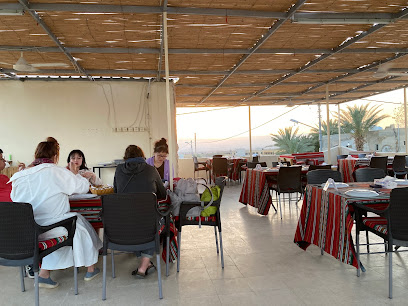
NEA local food
Experience authentic Jordanian cuisine at NEA Local Food in فيفا - a delightful journey through local flavors awaits.
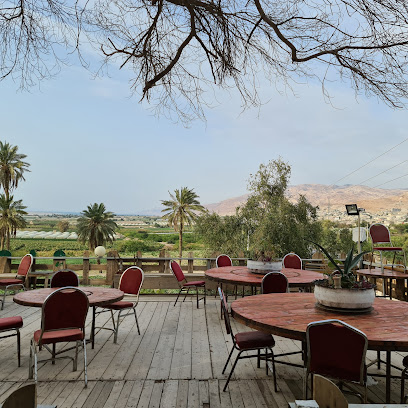
Mazayen
Indulge in an exquisite buffet experience at Mazayen, where diverse flavors meet warm hospitality in the heart of Jordan.
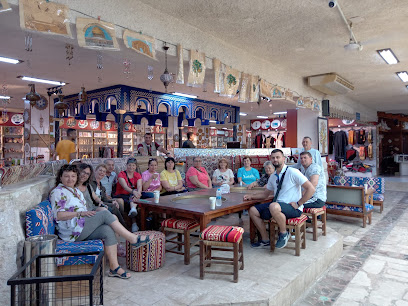
Brick Lane Restaurant Dead Sea
Experience authentic Jordanian cuisine with breathtaking views at Brick Lane Restaurant near the serene shores of the Dead Sea.
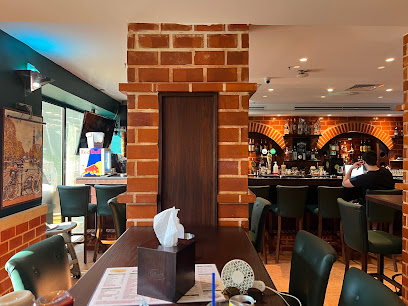
Restaurant Wadi Mujib
Discover the authentic taste of Jordan at Restaurant Wadi Mujib, where culinary excellence meets breathtaking views.
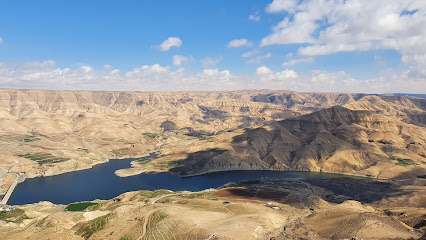
Luigi's Restaurant
Savor authentic Italian cuisine with stunning views at Luigi's Restaurant by the Dead Sea.
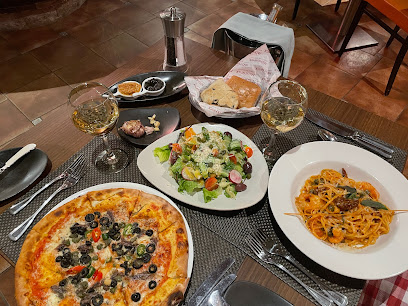
Ambrosia Restaurant Dead Sea
Discover exquisite dining at Ambrosia Restaurant in Crowne Plaza Jordan Dead Sea Resort - where culinary excellence meets breathtaking views.
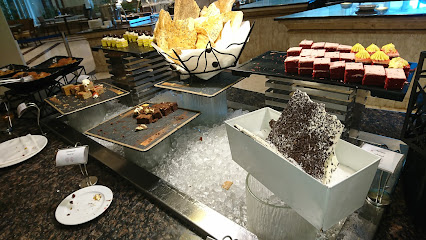
Sami's best view
Experience breathtaking views and delicious family-friendly cuisine at Sami's Best View in Al-Mughayer.
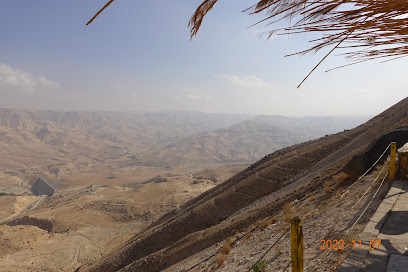
Markets, malls and hidden boutiques
Wadi Mujib
Experience the breathtaking landscapes and thrilling adventures of Wadi Mujib, a UNESCO biosphere reserve showcasing Jordan's natural beauty.
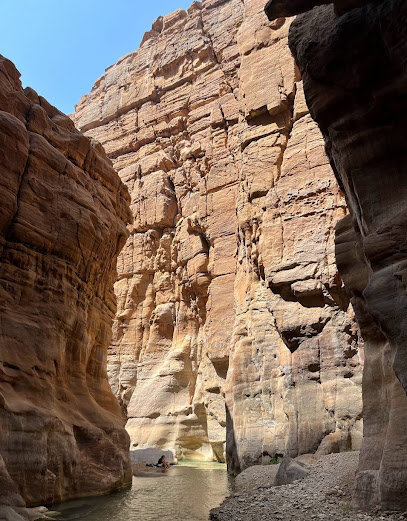
Made in Jordan
Explore Made in Jordan, a gift shop in Madaba showcasing exquisite local crafts, handmade souvenirs, and authentic Jordanian artistry.
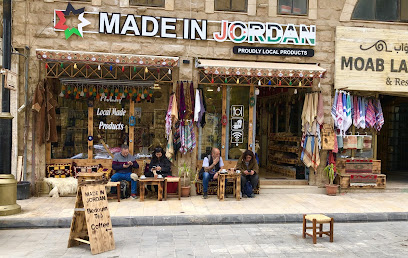
المؤسسة الأستهلاكية المدنية - سوق ذيبان
Explore the Civil Consumer Institution in Dhiban - a vibrant supermarket filled with local goods, fresh produce, and cultural experiences.

Games center and a supporter Blastishn
Experience the thrill of gaming at Blastishn in Dhiban, a lively center for fun, competition, and community engagement.

محلات نصر سالم الرواحنه
Explore محلات نصر سالم الرواحنه, a vibrant supermarket in Dhiban, offering a diverse selection of local and international products to enhance your travel experience.
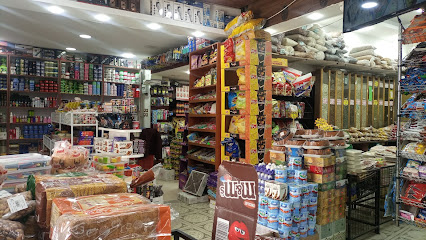
محمص انس القطامي supermarket
Explore محمص انس القطامي Supermarket in Dhiban, a treasure trove of local flavors and a hub for everyday essentials.
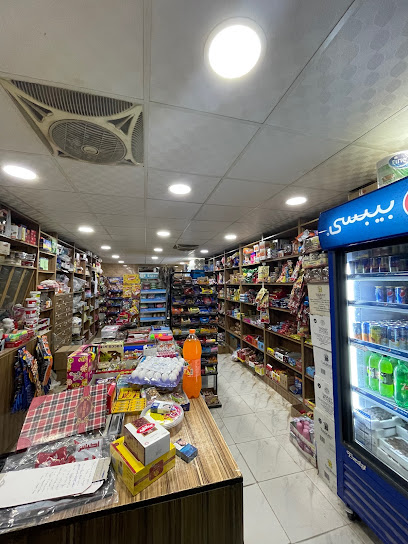
تمبكجي
Discover authentic Jordanian flavors at تمبكجي, a local grocery store in Dhiban offering a wide selection of fresh produce and traditional snacks.
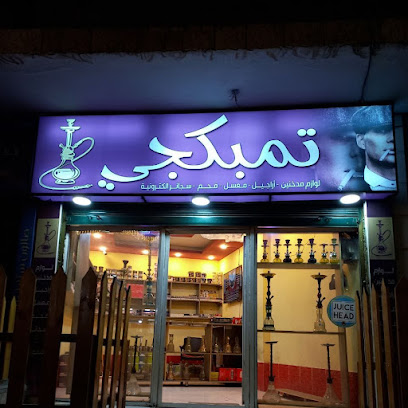
Wadi Mujib, Ibex Trail
Explore Wadi Mujib's Ibex Trail – Jordan's breathtaking hiking destination filled with stunning views and diverse wildlife.
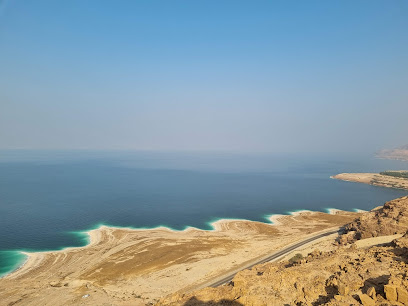
Playstation time
Discover a whimsical toy store filled with fun and nostalgia at Playstation Time, where happiness comes in all shapes and sizes.

ابو مثقال
Discover unique Jordanian fashion at Abu Mithqal in Dhiban, where traditional craftsmanship meets modern design.
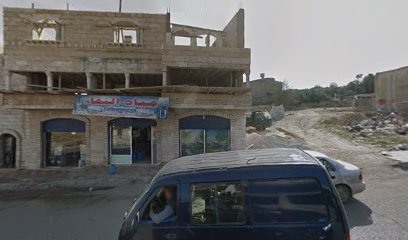
Tamer w lowz تمر و لوز
Explore Tamer w lowz, where every gift embodies the rich heritage of Jordanian craftsmanship and culture, perfect for souvenirs.
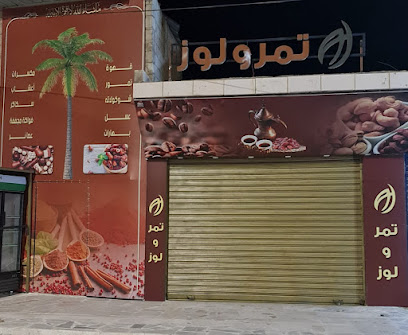
Super market jad’a
Discover the essence of local shopping at Super Market Jad’a, where fresh produce and local delicacies await every traveler.

مزرعة سليمان فرحات
Experience the serene beauty and agricultural charm of مزرعة سليمان فرحات, a perfect getaway for tourists seeking authentic Jordanian culture.

The rose for bags and shoes
Explore the finest selection of bags and shoes at The Rose for Bags and Shoes in Al-Mughayer, where fashion meets quality and style.
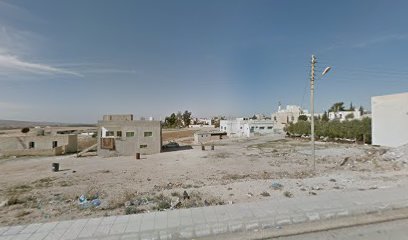
Super market
Discover the essence of Umm ar-Rasas at the local supermarket, where local flavors and vibrant culture meet.

Essential bars & hidden hideouts
Buffalo Wings & Rings - Dead Sea
Experience the best American cuisine at Buffalo Wings & Rings – Dead Sea, where delicious chicken wings meet a vibrant sports bar atmosphere.
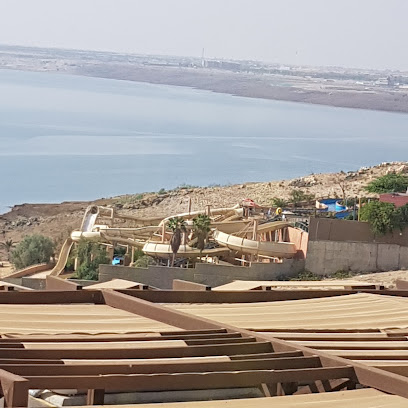
Amman Beach, Dead Sea , Jordan
Discover total relaxation and rejuvenation at Amman Beach, the jewel of the Dead Sea, where unique experiences await for every traveler.
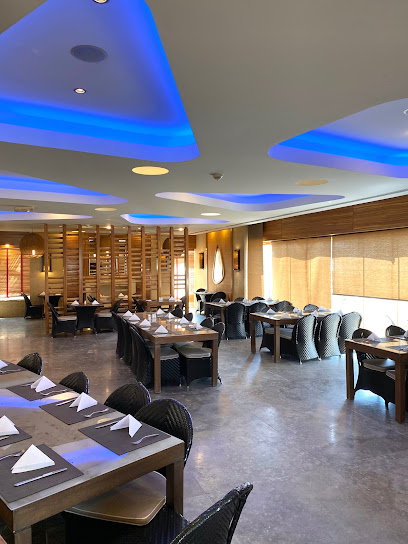
Dubliners Irish Pub & Restaurant
Discover authentic Irish cuisine and vibrant culture at Dubliners Irish Pub & Restaurant in Swemeh, a must-visit for all travelers.
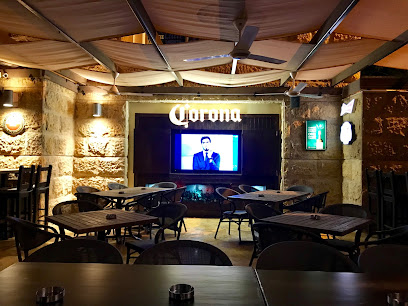
Valley Café & Bar
Experience the perfect blend of relaxation and culinary delight at Valley Café & Bar, overlooking the stunning Dead Sea.
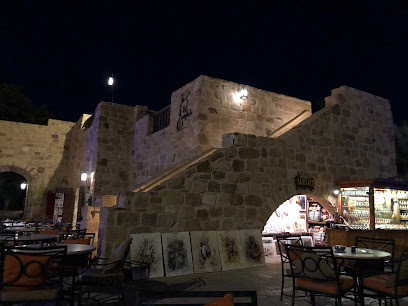
Restaurant Wadi Mujib
Discover authentic Jordanian cuisine at Restaurant Wadi Mujib in Al-Mughayer, where every meal tells a story of tradition and flavor.
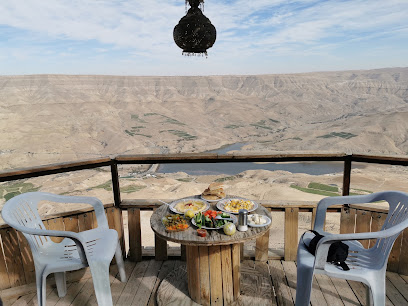
Sami's best view
Experience stunning views and delicious family-friendly dining at Sami's Best View in Al-Mughayer, perfect for creating lasting memories.
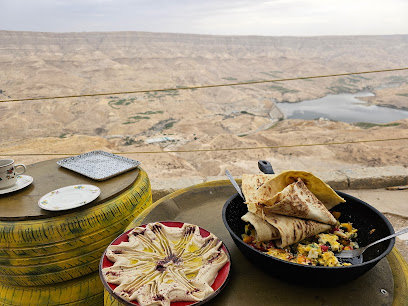
Rabbel Lounge & Bar
Experience the elegance of Rabbel Lounge & Bar by the Dead Sea, where exquisite dining meets breathtaking views in a serene atmosphere.

الخيمة الباجسية
Discover the vibrant nightlife at الخيمة الباجسية, a cultural bar offering delicious drinks and lively entertainment in a welcoming atmosphere.

OFFLINE LIQUOR STORE
Experience Madaba's finest selection of wines and spirits at Offline Liquor Store, where quality meets exceptional service.
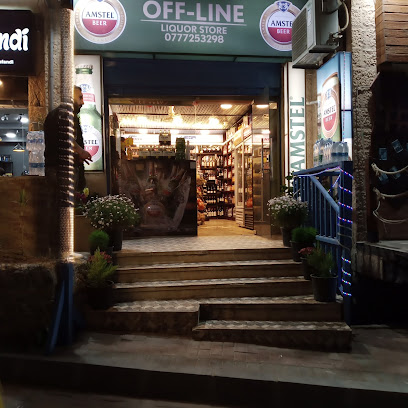
Bar
Discover the vibrant atmosphere of a charming bar in Sirfa, where locals and tourists unite to enjoy refreshing drinks and delightful company.
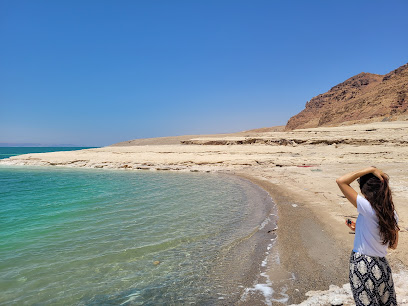
عصائر ايمن الخليلي
Experience the refreshing flavors of Ayman Khalili's Juices in Madaba, where local tastes and vibrant atmosphere await every traveler.
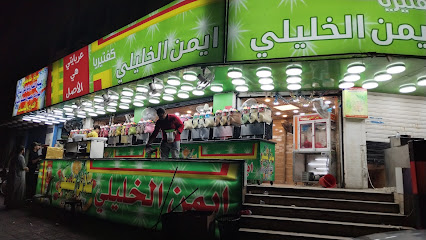
Al Khayyam Bar and Al Hana Lounge
Discover the elegance of Al Khayyam Bar and Al Hana Lounge by the Dead Sea, where exquisite drinks and stunning views create unforgettable moments.

البيك liquor store
Experience the local charm of Madaba at البيك liquor store, a vibrant bar offering an exceptional selection of beverages and lively entertainment.
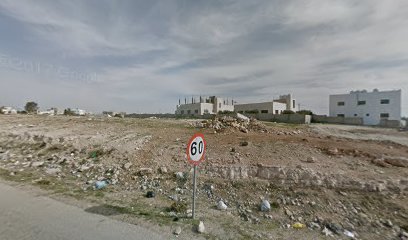
Acacia Bar & Lounge
Experience the sophistication and charm of Acacia Bar & Lounge at the Dead Sea Marriott Resort, where exquisite drinks and stunning views await.

Local Phrases about Wadi Mujib
-
- Helloمرحبا
[marhaban] - Goodbyeوداعا
[wadaeana] - Yesنعم
[naam] - Noلا
[laa] - Please/You're welcomeمن فضلك
[min fadlik] - Thank youشكرا
[shukran] - Excuse me/Sorryعذرا
[aadhara] - How are you?كيف حالك؟
[kayfa haluk?] - Fine. And you?بخير. وأنت؟
[bikhair. wa ant?] - Do you speak English?هل تتحدث الإنجليزية؟
[hal tatahadath al'injlizia?] - I don't understandأنا لا أفهم
[ana la afham]
- Helloمرحبا
-
- I'd like to see the menu, pleaseأريد أن أرى القائمة، من فضلك
[uridu an ara alqaimah, min fadlik] - I don't eat meatأنا لا آكل اللحم
[ana la aakul allahm] - Cheers!صحتين
[sahatayn] - I would like to pay, pleaseأريد أن أدفع، من فضلك
[uridu an adfaa, min fadlik]
- I'd like to see the menu, pleaseأريد أن أرى القائمة، من فضلك
-
- Help!النجدة!
[alnajdah!] - Go away!اذهب بعيدا!
[idhab baeidan!] - Call the Police!اتصل بالشرطة!
[atassil bialshurta!] - Call a doctor!اتصل بالطبيب!
[atassil bialtabib!] - I'm lostلقد ضللت الطريق
[ladh dhillt alttariq] - I'm illأنا مريض
[ana mareed]
- Help!النجدة!
-
- I'd like to buy...أريد أن أشتري...
[uridu an ashtari...] - I'm just lookingأنا فقط أتطلع
[ana faqat atatala] - How much is it?كم تكلف؟
[kam taklaf?] - That's too expensiveهذا غالي جدا
[hatha ghali jiddan] - Can you lower the price?هل يمكنك تخفيض السعر؟
[hal yumkinuka takhfid alsu'r?]
- I'd like to buy...أريد أن أشتري...
-
- What time is it?كم الساعة؟
[kam alsaa'ah?] - It's one o'clockالساعة الواحدة
[alsaa'ah alwahidah] - Half past (10)الساعة العاشرة والنصف
[alsaa'ah alashirah walnisf] - Morningالصباح
[assabah] - Afternoonالمساء
[almasa'] - Eveningالمساء
[almasa'] - Yesterdayالأمس
[al'ams] - Todayاليوم
[alyawm] - Tomorrowغدا
[ghadan] - 1واحد
[wahid] - 2اثنان
[ithnan] - 3ثلاثة
[thalathah] - 4أربعة
[arbahah] - 5خمسة
[khamsah] - 6ستة
[sittah] - 7سبعة
[sab'ah] - 8ثمانية
[thamaniah] - 9تسعة
[tis'ah] - 10عشرة
[asharah]
- What time is it?كم الساعة؟
-
- Where's a/the...?أين هو/هي...؟
[ayn huwa/hiya...?] - What's the address?ما هو العنوان؟
[ma huwa al'iunwan?] - Can you show me (on the map)?هل يمكنك أن تريني (على الخريطة)؟
[hal yumkinuka an tureeni (ala alkharytah)?] - When's the next (bus)?متى الحافلة القادمة؟
[mata alhafilah alqadimah?] - A ticket (to ....)تذكرة (إلى ...)
[tathkirah (ila ...)]
- Where's a/the...?أين هو/هي...؟
History of Wadi Mujib
-
Wadi Mujib, historically known as the Arnon River, was a crucial part of ancient trade routes. Merchants and caravans traveled through this rugged terrain, connecting the Arabian Peninsula with the Mediterranean coast. This ancient path facilitated the exchange of goods, ideas, and cultures between the East and the West.
-
Wadi Mujib is mentioned several times in the Bible. It served as a boundary between the Moabites and the Amorites. The river is notably referenced in the story of Jephthah's vow in the Book of Judges, highlighting its importance in the region's religious and cultural history.
-
During the Roman era, Wadi Mujib was a vital part of the empire's infrastructure. The Romans built bridges and roads through the canyon, showcasing their engineering prowess. These constructions facilitated the movement of troops and trade, contributing to the economic stability of the Roman Empire.
-
In the Byzantine period, Wadi Mujib was part of the Provincia Arabia. The Byzantines utilized the area for agricultural purposes, harnessing the river's waters to irrigate their crops. This period saw the construction of monasteries and churches, reflecting the spread of Christianity in the region.
-
Under Ottoman rule, Wadi Mujib continued to be a strategic location. The Ottomans maintained and expanded the ancient pathways, ensuring the region remained a vital link in their vast empire. The area's natural resources were also exploited, contributing to the local economy.
-
In contemporary times, Wadi Mujib has been designated as a nature reserve. Established in 1987, the Mujib Biosphere Reserve is renowned for its biodiversity and scenic beauty. It attracts adventurers and nature enthusiasts from around the world, preserving the area's cultural and natural heritage.
Wadi Mujib Essentials
-
Wadi Mujib is located in the western part of Jordan, near the eastern shore of the Dead Sea. The nearest major city is Amman, which is approximately 90 kilometers away. From Amman, you can reach Wadi Mujib by car, with the drive taking around 1.5 to 2 hours. Alternatively, you can take a bus or hire a taxi from Amman. If you are coming from the south, Aqaba is about a 4-hour drive from Wadi Mujib.
-
Once in Wadi Mujib, the most convenient way to explore the area is by renting a car. This provides the flexibility to visit various sites at your own pace. Taxis are also available, but it is advisable to negotiate the fare in advance. Public transportation options are limited, so having your own vehicle or hiring a taxi is recommended for a more comfortable experience.
-
The official currency in Jordan is the Jordanian Dinar (JOD). Credit cards are accepted in most hotels and larger restaurants, but it is advisable to carry cash for smaller establishments, entrance fees, and tips. ATMs are available in larger towns and cities, but may be scarce in rural areas, so ensure you withdraw enough cash before heading to Wadi Mujib.
-
Wadi Mujib is generally a safe destination for tourists. However, it is always wise to take standard precautions. Avoid leaving valuables unattended and be cautious when hiking or exploring remote areas. There are no specific high-crime areas targeting tourists, but it is always best to stay vigilant and aware of your surroundings.
-
In case of emergency, dial 911 for immediate assistance. The nearest major medical facilities are in Amman, so it is recommended to have travel insurance that covers medical emergencies. For minor health issues, there are pharmacies in nearby towns where you can purchase over-the-counter medications.
-
Fashion: Do dress modestly, especially when visiting religious sites. Avoid wearing revealing clothing. Religion: Do respect local customs and traditions. Public Transport: Do be respectful and give up your seat to elderly passengers. Don't eat or drink on public transport. Greetings: Do greet people with a handshake. A slight bow of the head is also a sign of respect. Eating & Drinking: Do try local delicacies and accept food offerings graciously. Don't refuse hospitality, as it is considered impolite.
-
To experience Wadi Mujib like a local, try to engage with the local community. Visit local markets to buy fresh produce and traditional Jordanian goods. Join a guided hike through the Mujib Biosphere Reserve to learn about the area's unique flora and fauna. Don't miss the opportunity to try traditional Jordanian dishes such as Mansaf and Maqluba at local eateries.
Nearby Cities to Wadi Mujib
-
Things To Do in Madaba
-
Things To Do in Dead Sea
-
Things To Do in Ein Gedi
-
Things To Do in Masada
-
Things To Do in Amman
-
Things To Do in Bethlehem
-
Things To Do in Salt
-
Things To Do in Jerusalem
-
Things To Do in Tafilah
-
Things To Do in Dana
-
Things To Do in Modi'in
-
Things To Do in Jerash
-
Things To Do in Beersheba
-
Things To Do in Azraq
-
Things To Do in Mafraq








